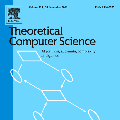Many classical problems in theoretical computer science involve norm, even if implicitly; for example, both XOS functions and downward-closed sets are equivalent to some norms. The last decade has seen a lot of interest in designing algorithms beyond the standard $\ell_p$ norms $\|\cdot \|_p$. Despite notable advancements, many existing methods remain tailored to specific problems, leaving a broader applicability to general norms less understood. This paper investigates the intrinsic properties of $\ell_p$ norms that facilitate their widespread use and seeks to abstract these qualities to a more general setting. We identify supermodularity -- often reserved for combinatorial set functions and characterized by monotone gradients -- as a defining feature beneficial for $ \|\cdot\|_p^p$. We introduce the notion of $p$-supermodularity for norms, asserting that a norm is $p$-supermodular if its $p^{th}$ power function exhibits supermodularity. The association of supermodularity with norms offers a new lens through which to view and construct algorithms. Our work demonstrates that for a large class of problems $p$-supermodularity is a sufficient criterion for developing good algorithms. This is either by reframing existing algorithms for problems like Online Load-Balancing and Bandits with Knapsacks through a supermodular lens, or by introducing novel analyses for problems such as Online Covering, Online Packing, and Stochastic Probing. Moreover, we prove that every symmetric norm can be approximated by a $p$-supermodular norm. Together, these recover and extend several results from the literature, and support $p$-supermodularity as a unified theoretical framework for optimization challenges centered around norm-related problems.
翻译:暂无翻译



